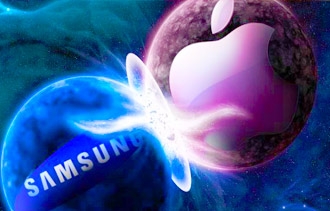What the Apple vs. Samsung lawsuit means for the future of smartphone design

Cult of Mac
Will this mega-lawsuit dramatically alter the way our devices are manufactured and, in turn, affect our decision-making process when buying a smartphone for personal or business use? Probably not.
The New York Times predicted that this decision would wreak design havoc in the mobile device landscape: "Consumers could end up with some welcome diversity in phone and tablet design -- or they may be stuck with devices that manufacturers have clumsily revamped to avoid crossing Apple.”
The real outcome of the Apple vs. Samsung lawsuit is likely to be more lawsuits. And perhaps higher prices for non-Apple smartphones. But in the long run, I suspect the effects of this case will be negligible to consumers and business users of mobile devices.
Patent expert Thomas Frey of the Louisville, Colo.-based think tank the DaVinci Institute explains, "This is gamesmanship, it's all moving queens and rooks around the chessboard. In the end the legalities won't matter. All the solutions will be off the chessboard. The players will say to each other: 'If you pay me $X, I'll say you win.'"
The recent decision will likely be appealed, and it's possible that it may be struck down. But even if the decision stands, it's more likely that Samsung and all Android device makers will keep doing business mainly as usual.
Electronics manufacturers, especially mobile device makers, license patented technologies from each other all the time, for a fee. For instance, after a patent "misunderstanding” last year, Apple started paying Nokia an estimated $11.50 for every iPhone sold. Similarly, in a settlement agreement last year, Samsung agreed to pay Microsoft $10 to $15 for each smartphone or tablet it sells.
In the U.S. market, the vast majority of smartphones are at a price heavily subsidized by wireless carriers, along with a two-year service contract -- which further obscures the effect of licensing fees on phone prices.
So, for smartphone users, the changes likely won't be too noticeable and infringement lawsuits probably won't factor into their buying decisions.
What the stars mean:
★ Poor ★ ★ Promising ★★★ Good ★★★★ Very good ★★★★★ Exceptional
Latest News
More News
- Businesses ramp up production as year-end orders surge (December 30, 2025 | 10:05)
- Vietjet chairwoman awarded Labour Hero title (December 29, 2025 | 13:06)
- How to unlock ESG value through green innovation (December 29, 2025 | 10:03)
- AI reshapes media and advertising industry (December 29, 2025 | 08:33)
- FPT and GELEX sign deal to develop blockchain tech for global markets (December 29, 2025 | 08:29)
- Vietnam’s GDP forecast to grow by 9 per cent in 2026 (December 29, 2025 | 08:29)
- Women entrepreneurs are key to Vietnam’s economic growth (December 29, 2025 | 08:00)
- Vietnam's top 500 value-creating enterprises announced (December 27, 2025 | 08:00)
- The PAN Group shaping a better future with ESG strategy (December 26, 2025 | 09:00)
- Masan Consumer officially lists on HSX, marking the next phase of value creation (December 25, 2025 | 13:20)

















 Mobile Version
Mobile Version